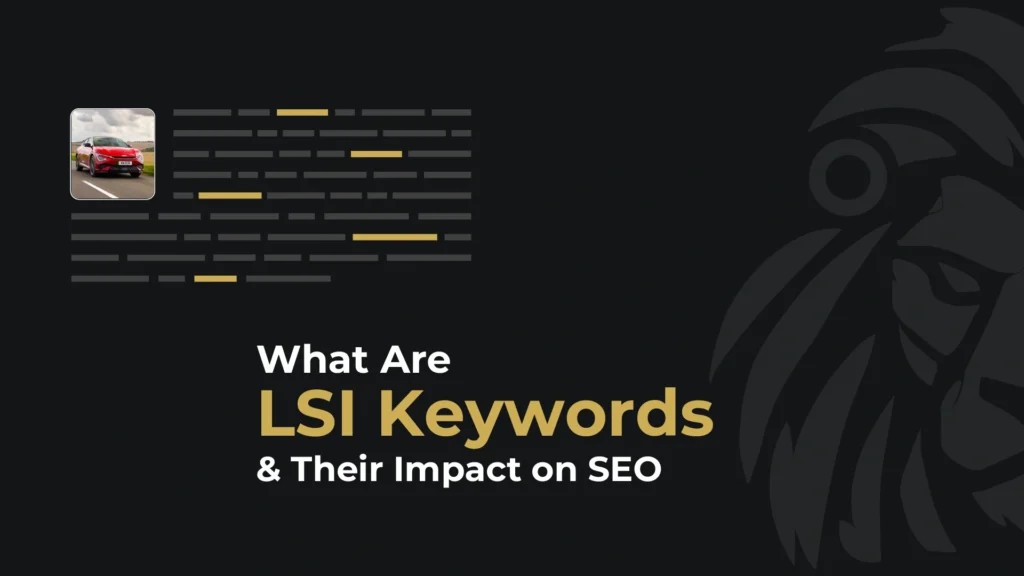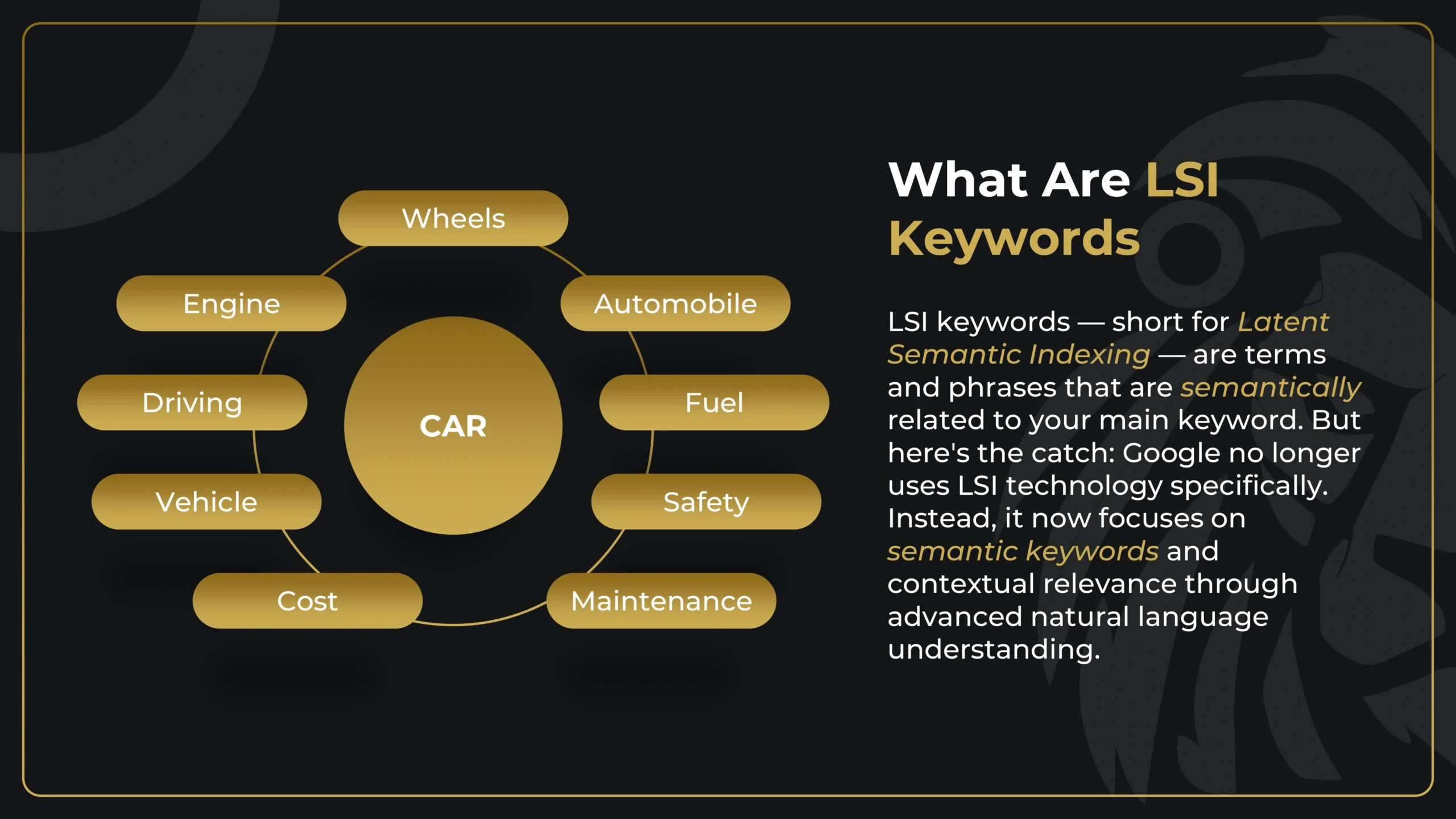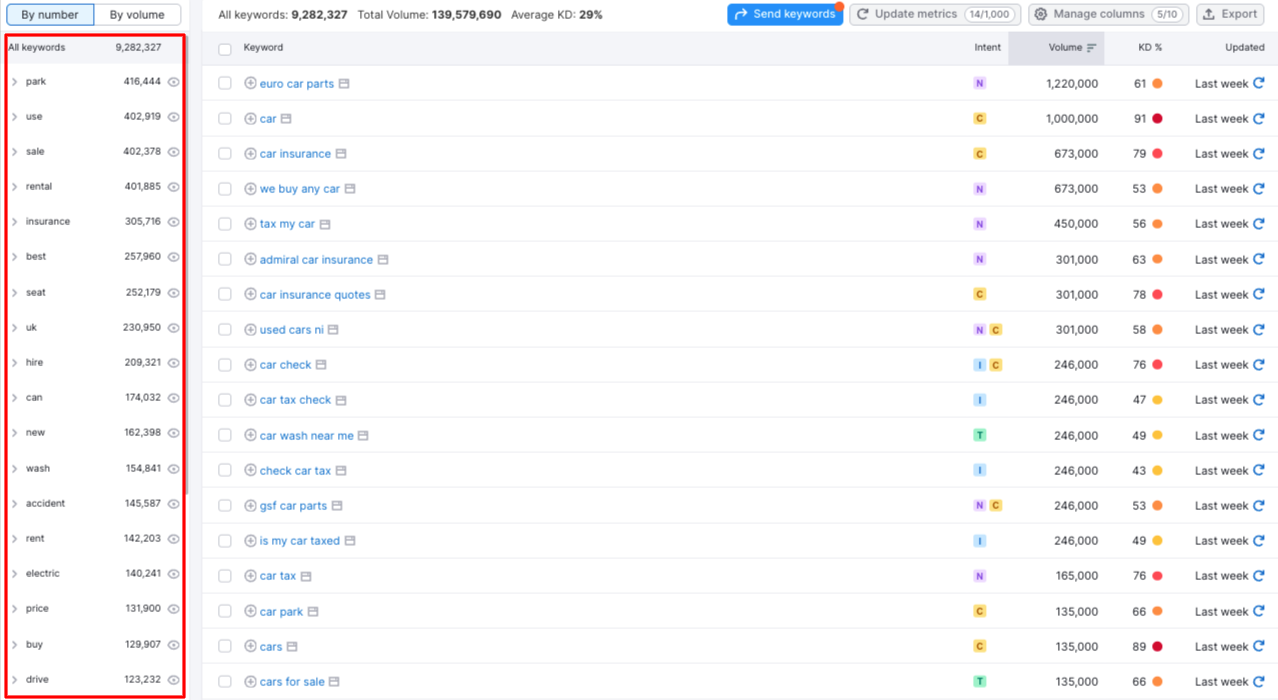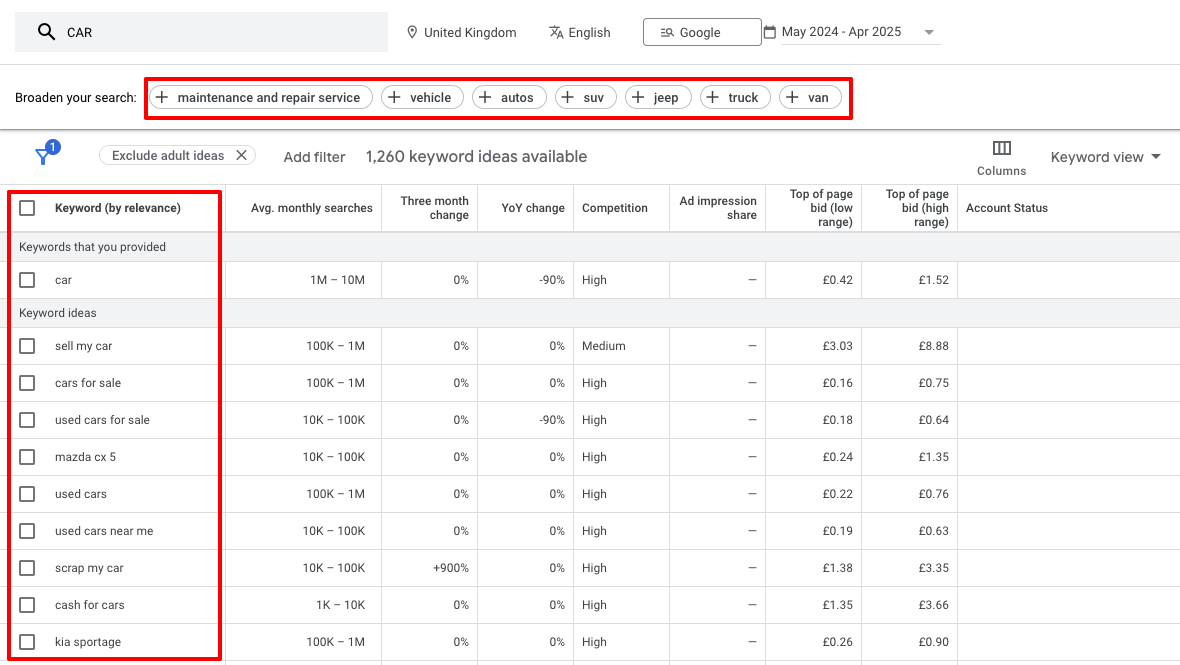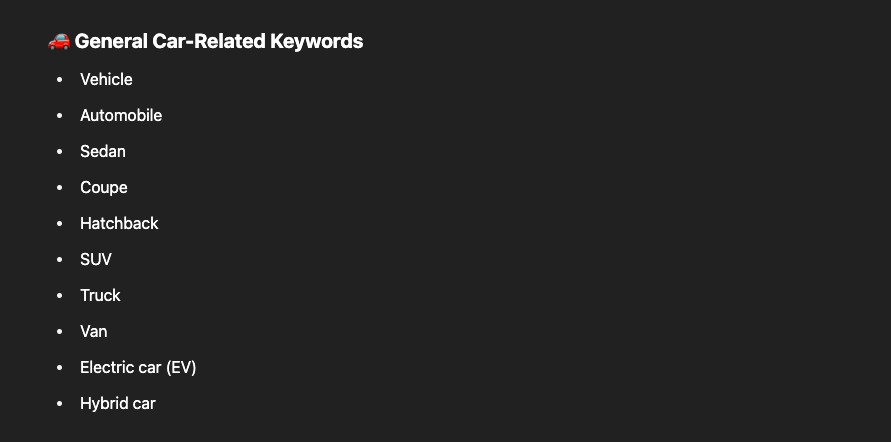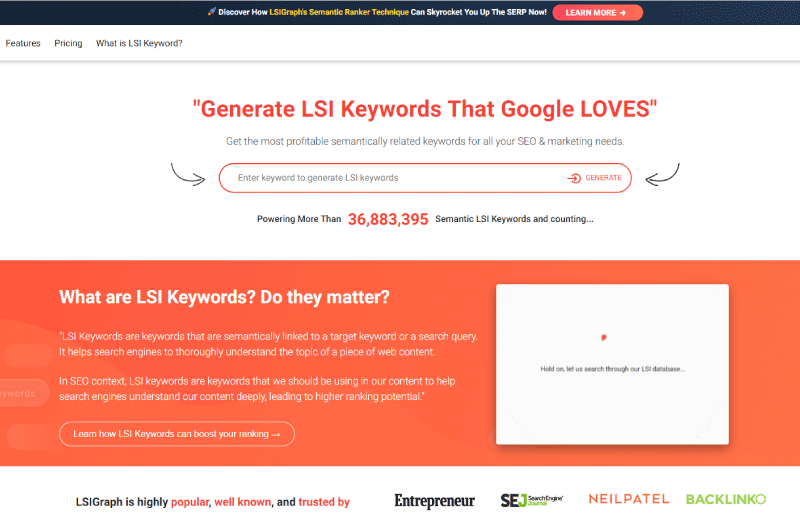Understanding LSI Keywords in Modern SEO
LSI (Latent Semantic Indexing) keywords are words and phrases semantically connected to your main keyword. While Google no longer uses LSI technology directly, the core idea still matters – search engines now focus on context and relevance using advanced AI.
Using relevant words and phrases that help define the issue more precisely increases the possibility of your content ranking higher (especially in Google’s AI-generated overviews). That means stuffing pages with keywords is outdated. SEO in 2025 is about creating content that builds a clear, trustworthy topic environment using semantically relevant language.
In this article, we’ll break down what LSI keywords are, why they still matter, and how to use them to boost your SEO strategy in 2025 and beyond.
[lwptoc depth=”1″ title=”Table of Contents” toggle=”0″ backgroundColor=”#ffffff” borderColor=”#ffffff” linkColor=”#997317″]
How LSI Keywords Work: From Synonyms to Semantic Relationships
LSI keywords can differ greatly from ordinary synonyms, which many marketers miss. LSI keywords have more value even if synonyms (like “car” and “automobile”) have similar meanings. They represent terms and expressions with linguistic similarity as well as contextually related ones. Here the concept of semantic search becomes relevant.
These days, search engines aim not only for matching terms but also for semantic meaning—the goal and context of a search. For example, Google searches not only for “shoes” depending on your main keyword. It also expects to find contextual keywords like “footwear,” “sneakers,” “boots,” and even related concepts such as “comfort,” “walking,” or “running.”
This shift is driven by natural language processing (NLP) and AI models that power semantic search. These models analyse patterns, usage, and associations between terms across billions of documents.
Using semantically related terms in your material can help search engines to know that it covers the topic completely. This emphasises topic depth, relevance, and clarity in line with the way artificial intelligence overviews create information, therefore stressing these aspects.
You have to understand this difference if you wish to maximise your material for both generative and classic search engines.
Why LSI Keywords Help Your SEO in 2025?
In the context of artificial intelligence-driven landscape, LSI SEO is more vital than ever. Search engines like Google have evolved from matching particular keywords to understanding more broad topics using semantic SEO. This means that your information is reviewed not only on keywords but also on how faithfully it catches the overall idea and aim behind a search.
Semantically linked phrases enable you to establish topical relevance, which is crucial for the content quality decisions made by AI-based search engines. Including contextual variants guarantees your page completely and exactly answers the user’s question, therefore allowing search engines to link the dots.
This approach is also very important as demonstrated in Google’s AI Overview. Exactly what SEO AI tools want to generate when recommending LSI or related terms, these generative summaries offer content exhibiting depth, clarity, and contextual knowledge top priority.
Simply mentioned, correctly applying LSI keywords increases your chances of ranking across both natural results and AI-powered features.
How to Find LSI Keywords: Tools and Techniques
Finding LSI keywords doesn’t require guesswork, there are several proven techniques and tools that can help uncover relevant terms to strengthen your content. One of the simplest ways to start is by using Google Autocomplete, Google Suggest, and the People Also Ask section. These features reveal real-time search intent and commonly associated queries, acting as a natural LSI keyword generator
Techniques for Discovering LSI Keywords
- Google Autocomplete & Google Suggest: Strategies for Finding LSI Keywords
Starting in Google’s search bar, type your main keyword and see the suggestions that show up. These closely related words offer useful contextual keywords and mirror actual user searches.
- People Also Ask (PAA).
Found right in the SERPs, this function displays often asked follow-up questions. They expose semantic links that might guide headings and subtopics in your work.
- Content Analysis of Competitors
Search top-ranking papers for your target terms. Search for repeated phrases, subheadings, and related terms used throughout their material; these often point to effective LSI keyword use.
Tools to Create Semantic Keywords and LSI
- SEMRush Topic Research
Enter a seed keyword and SEMrush generates questions, headlines, and clusters of related topics. It is a great tool for creating semantic keywords.
- Google Keyword Tool – Keyword Planner
Originally AdWords, Google Ads now feature a Google keyword planner. This planner guides you in choosing the ideal keywords and computing their search volume. The keyword planner was meant to enable search engine marketers know which keywords they could employ to have lower-price, higher-ranking advertising. Still, you can use the keyword planner to satisfy your LSI keyword requirements as long as you have a Google Ads account.
- ChatGPT for Semantic Expansion
Prompt ChatGPT to produce a list of related terms and questions for semantic expansion. It lets users and search engines replicate how contextually they would grasp your topic.
- LSIGraph
LSI Graph is a website designed to assist in your search for appropriate LSI keywords for your work. With several tools for researching, optimising, and adjusting your material, this site is a superb keyword finding tool.
How to Use LSI Keywords Naturally in Content
Integrating LSI keywords effectively is more about strategy than repetition. Instead of forcing terms into your content, focus on where and how they add value—this is the essence of effective LSI content writing.
Placement Strategies
Include semantically related keywords in:
- Headings: Reinforce subtopics with contextual terms.
- Paragraphs: Use variations naturally as part of explanations.
- Image Alt-Text: Add semantic meaning while improving accessibility and image SEO.
These placements signal topic depth to search engines and AI models without affecting readability.
Match User Intent
AI search engines prioritise content that aligns with intent. If your content serves informational purposes, use educational or explanatory LSI terms. For commercial content, integrate terms that signal buying intent, benefits, or comparisons. This ensures that SEO and AI algorithms can categorise your content appropriately.
Avoid Keyword Stuffing
Limit your use of keywords. Tools and SEO automation enable density and flag overuse analysis. Few strategically placed, significant LSI phrases have the force of hundreds of forced insertions.
Your logical structure and natural language will satisfy both search engines and viewers.
Case Example: LSI Keywords in a High-Fat Diet Article
Let’s say you’re writing an article about the benefits of a high-fat diet. Your main keyword might be “high-fat diet,” but to build context, you would naturally include related keywords like “ketogenesis,” “calories,” “blood sugar,” “insulin resistance,” and “macronutrients.”
By incorporating these terms, you provide a richer semantic environment that enhances search engine understanding. Rather than interpreting your content as a random mention of dietary fats, AI-driven search engines can recognise that your article covers metabolic function, energy balance, and dietary science comprehensively.
This depth is exactly what large language models (LLMs) use when generating summaries, such as those shown in Google’s AI Overview. The more contextual signals your content contains, the more likely it is to be included in generative responses.
In this way, strategically placing semantically related keywords isn’t just good for SEO—it helps you future-proof your content for AI-driven discovery.
How AI and Generative Engines Handle LSI Keywords?
Search engines have become smarter—and in 2025, traditional keyword matching is no longer enough. With the rise of AI for SEO, platforms like Google now use advanced natural language models to understand meaning, not just words. This is where generative engine optimisation (GEO) comes in.
GEO seeks to allow AI systems like Google’s AI Overview to more fundamentally grasp your material. These algorithms instead of exact-match keywords find how effectively your material reacts to a search query utilising semantic relationships, entities, and vector-based models.
Therefore, the strategy focused on employing related, meaningful terms is still crucial even if the term “LSI keywords” is out-of-date technically. AI-generated summaries and voice search results more likely to offer information including a wide range of relevant terms.
SEO in 2025 is about meaning, context, and coverage – not simply words.
Why LSI Keywords Still Matter?
Google no longer uses LSI technology. However, the concept of LSI keywords is still important for SEO today. To be seen and recognised as an expert in today’s search environment, especially with semantic search and AI-generated summaries, it’s important to use words that are related to your main topic.
Whether you’re creating informational blog posts or optimised service pages, integrating related phrases naturally helps search engines – and generative engines – better understand your content. From SEO automations to semantic keyword generators, the tools available today make it easier than ever to apply these techniques effectively.
The takeaway? Don’t just focus on exact-match keywords. Embrace semantic relevance, user intent, and content depth to future-proof your SEO strategy in 2025 and beyond.
Want Dominate Online to take your SEO to the next level? Explore our SEO services and book in a discovery call today!
LSI Keywords and Semantic SEO FAQs
What is an example of an LSI keyword?
If your main keyword is “laptop,” LSI keywords mght include “notebook computer,” “MacBook,” “SSD storage,” and “Intel processor.” These are related terms that help search engines understand the topic more clearly.
Does Google still use LSI keywords?
Technically, no. Google doesn’t use LSI (Latent Semantic Indexing) technology. However, it does analyse semantic relationships and contextual relevance—so using related terms still helps your content rank better.
Are LSI keywords and semantic SEO the same?
Not exactly. LSI keywords are part of semantic SEO. While LSI refers to related terms, semantic SEO is a broader approach that includes user intent, entities, and topic depth to improve content relevance.
How do I generate LSI keywords?
You can use tools like Google Autocomplete, People Also Ask, SEMrush Topic Research, or AI models like ChatGPT. These act as effective semantic keyword generators, helping you discover contextually relevant terms for your topic.
